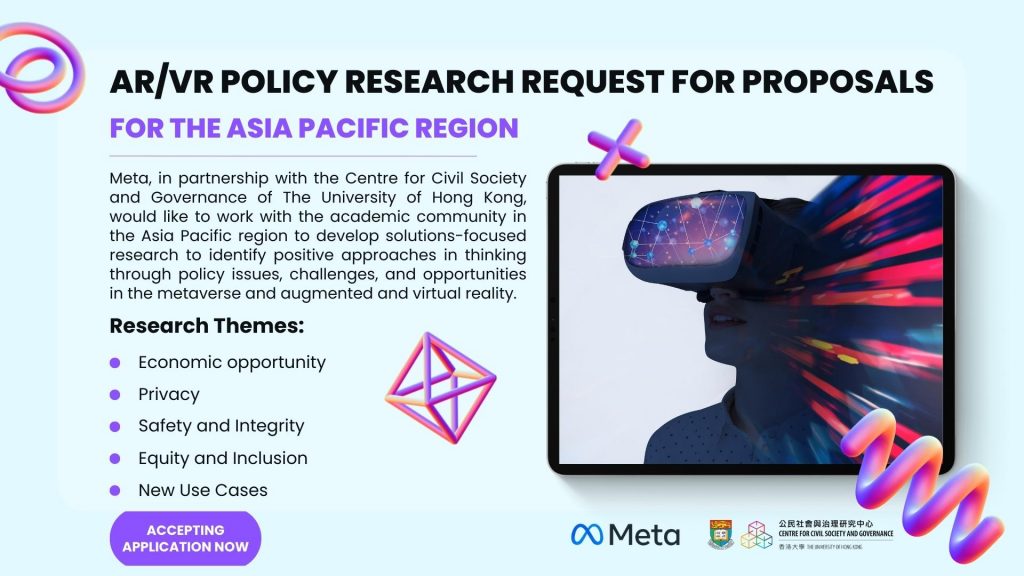We develop technology rooted in human connection that brings people together. As we focus on helping to build the next computing platform, our work across augmented and virtual reality and consumer hardware will deepen that human connection regardless of physical distance and without being tied to devices.
The “metaverse” is a set of virtual spaces where you can create and explore with other people who aren’t in the same physical space as you. You’ll be able to hang out with friends, work, play, learn, shop, create and more. It’s not necessarily about spending more time online — it’s about making the time you do spend online more meaningful.
The metaverse isn’t a single product one company can build alone. And it won’t be built overnight. Many of these products will only be fully realized in the next 10-15 years, and gives us time to ask the difficult questions about how they should be built.
The Centre for Civil Society and Governance of The University of Hong Kong, in partnership with Meta, would like to work with the academic community in the Asia Pacific region to develop solutions-focused research to identify positive approaches in thinking through policy issues, challenges, and opportunities in the metaverse and augmented and virtual reality.
The Research Initiative, through a Request for Proposals (RFP), will result in the production of papers from academic institutions, think tanks, and research organizations registered and operational across the Asia Pacific region. Proposals will be reviewed by a selection committee, and the entities whose proposals are selected will receive a research grant.
Category : Award and Achievement

